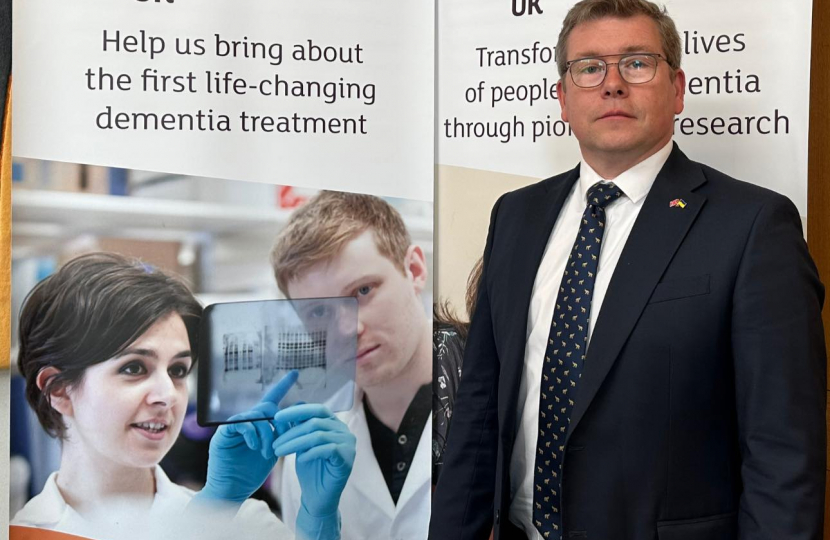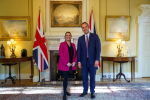
This World Alzheimer’s Month, Peter Gibson MP has been supporting Alzheimer’s Research UK to raise awareness of the disease, and prompt urgent action to tackle the increasing pressure that it places on society, health and care services, and the economy.
Throughout September, Peter Gibson has been taking action in their role as a Dementia Research Champion, as new NHS figures reveal one in three people living with dementia never receive a formal diagnosis. This leaves them unable to access potentially life-changing treatments that could be approved for use in the UK in a few months.
Alzheimer’s Research UK says that limited availability of diagnostic tests and wider pressures on services has resulted in an unacceptable postcode lottery. Just 68.2% of people living with dementia in NHS North East and North Cumbria ICB will be diagnosed, compared to 73.5% in NHS South Yorkshire ICB.
Dementia remains the biggest killer in the UK and is on track to be the nation’s most expensive health condition by 2030. If nothing changes, one in two of us will be directly affected by it - either by caring for someone with the condition, developing it ourselves or both.
Peter Gibson MP said: “I’m proud to be a Dementia Research Champion and support the tireless work of Alzheimer’s Research UK. Life-changing progress is being made in the labs every day. But we must speed up our efforts to save people from the heartbreak of dementia sooner. I’m particularly keen to help ensure everyone who is living in Darlington with dementia gets a formal diagnosis as this is crucial in ensuring everyone can access the treatments and support they need.”
David Thomas, Head of Policy at Alzheimer’s Research UK said: “We’re delighted to have the support of Peter Gibson on such an important issue. People with dementia need MPs like Peter who will champion their needs in parliament and -support action to transform the way dementia is diagnosed, treated, and ultimately prevented entirely.
“We're calling on all political parties to commit to ensuring dementia does not remain a death sentence for those it touches. and back measures to address the unsustainable pressure it places on our health and care system, and our economy. We need tangible action from government to help ensure a future where there is ultimately a cure for dementia, and where people can be free from the fear and heartbreak of this devastating condition.”

